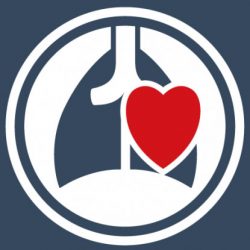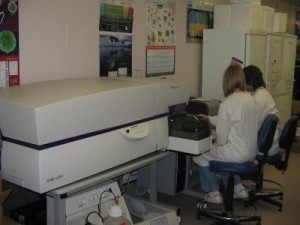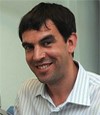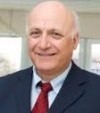To view our Privacy Policy please click below


Supporting the North West Centre for Heart & Lung Transplantation
Research
January 2016
Further to the last research post, Ann-Marie, has completed her Masters degree on Clinical Research Methods. The New Start Charity supported her study into improving knowledge on diabetes and pre-diabetes in heart and lung transplant recipients using continuous glucose monitoring.
Results of the study found 25% of participants had impaired glucose tolerance (pre-diabetes) that had previously been un-detected. In addition blood sugars were significantly higher in the afternoon than morning. Unfortunately most glucose tests are undertaken in the morning and therefore may underestimate blood sugar levels. In addition, a new standard test for diabetes, being HbA1c or glycated haemoglobin, did not detect any cases of diabetes or pre-diabetes.
So what does this mean? Although this was only a small pilot study, the findings suggest standard tests for diabetes may lead to delays in diagnosing and treating diabetes. This in turn may lead to symptoms such as tiredness, thirst, increased frequency in urinating, as well as increasing the risk of complications such as infections, poor circulation, strokes, worsening kidney function.
To help reduce your risk of developing diabetes and pre-diabetes you should try to maintain a healthy weight for your height and keep active. If you are overweight then achieving a 10% weight loss can reduce your risk of developing diabetes by a huge 50%. If you would like support with losing weight please ask your GP or Transplant nurse to refer you to either local weight management services or the dietitians here at the Transplant Unit.
Ann-Marie would like to say a big thank-you to everyone who participated and helped in the study.
February 2015
Last September, Ann-Marie Nixon, who has worked as the Transplant Dietitian for the last 11 years, was awarded a National Institute of Health Research studentship to undertake a Masters Degree in Clinical Research Methods at the University of Leeds. As part of her studies Ann-Marie is undertaking a research project looking at how immunosuppression impacts on sugar levels throughout the day in heart and lung transplant recipients who don’t have diabetes. This is important as it will help early identification of pre-diabetes and diabetes. Which in turn will allow treatment to be optimized which may help prevent some of the complications associated with new onset diabetes after transplant (NODAT). New Start has helped fund the equipment which includes a device which can measure your glucose levels every 5 minutes.
October 2013
This month John Stone was selected to become a postgraduate research scholarship ambassador for the University of Manchester. This will provide John with the opportunity to spread the word about his work, and to develop further links with both the University and the wider community.
John Stone and Will Critchley also spent a few days in Sweden in order to further our collaboration with experimental surgeon Prof. Stig Steen. They were required to work tirelessly around the clock collecting additional samples for John’s PhD study. They also discussed ways to broaden the collaboration in future to incorporate research into improved methods of heart transplantation.
September 2013
The European Society for Organ Transplantation conference took place this month in Vienna, where a number of our group were able to present important findings. These presentations were well received and stimulated some interesting discussions.
John Stone, a PhD student at our centre, was selected to represent the Institute of Inflammation and Repair at this year’s Faculty of Medicine showcase. This is an amazing achievement given that he is only in the 9th month of his PhD, yet has made several important findings which could change clinical practice in lung transplantation on an international scale. John’s presentation will soon be available to view online, and a link will be posted here once it has been uploaded.
Also, we have taken on two new placement students from the University of Salford. James Tray and Ben Emerson will be with us for a year and will help out across a range of research studies. Our placement students from last year, Sumiyya Mahmood and Greeshma Rajan have now returned to university, although they will each undertake a research project here as part of their final year. We would like to congratulate both Sumiyya and Greeshma, who were awarded first class grades for their work conducted here over the last year.
Finally, the research team would also like to thank all of the patients who recently took the time to complete the dietary questionnaire.
June 2013
One of our PhD students, Will Critchley, has been bestowed with the prestigious President’s Doctoral Scholar status for 2013. This award is given to the most outstanding students from across the UK and from around the world, and reflects Will’s potential to develop into an outstanding independent researcher, based on his academic track record and research successes so far. Will successfully applied for a BBSRC funded PhD studentship entitled ‘Homeostatic mechanisms underlying myocardial repair – a systems approach’, and will be at the Transplant Centre until at least 2016. He will work on identifying proteins involved in the control of inflammation and myocardial repair following injury.
We would also like to congratulate Louise Archer, Will Critchley, Mary Gieschen-Krische and John Stone, who were this month selected to present their work at the annual meeting of the European Society for Organ Transplantation, which takes place in Vienna this September. Louise will present her work looking at the effects of fish oil derivatives on T cell activation. Will is going to discuss the immune regulating properties of a naturally released protein “soluble interleukin-2 receptor”. Mary will present her findings relating to the role of NKT cells following lung transplantation, and John will be demonstrating how ex vivo lung perfusion alters the transplant recipient immune system.
April 2013
Hanan Alharthi, Tala Odeh and Bahaa Naser, our three MSc Immunology students from the University of Manchester have now started their projects and are settling into life in the lab. Four University of Manchester medical students have also joined our group this month. Daniel Jenkin, Daniel Doherty, Stacey Morley and Syed Hussain will be spending their eleven week research placement with us in the Transplant Centre.
A number of our team recently visited the University Hospital in Lund, Sweden, in order to consolidate and extend our collaboration with Professor Stig Steen and his team. We were able to discuss a number of exciting ideas that will be translated into collaborative research projects in the near future. Also, John Stone was able to present the interesting data that he has generated so far for his PhD project, which is based around ex vivo lung perfusion.
March 2013
Bhuvaneswari Krishnamoorthy, a member of our research team since 2008, has this month been presented with two national awards. Bhuvana was awarded the 1st prize at the Society for Cardiothoracic Surgery in Brighton for the Best Research Project 2013. This was in recognition of her work on improving clinical outcomes following coronary artery bypass graft surgery with the use of a closed suction drain. In addition to this, she was also presented with the 3rd prize in the British Journal of Nursing Infection Prevention and Control Award 2013 at a formal ceremony in the Globe theatre, London.
The research team are now busy preparing for the arrival of three new MSc students from the University of Manchester, who commence their projects in April, and will be with us until September.
February 2013
The Transplant Research Group has now joined the Manchester Collaborative Centre for Inflammation Research (MCCIR for short). This is a world-leading centre for basic and translational research in inflammation and inflammatory disease, involving world class scientists. Our group will attempt to study the effects of tissue injury and stress on the immune response, and see if we can identify ways of reversing this process in the heart and lungs before and after transplantation. We will bring you a more detailed update of the MCCIR soon!
January 2013
Tim Entwistle has been funded by the NewStart to undertake a three year PhD studying the effects of diet intervention and lifestyle advice following heart and lung transplantation. Tim has previously studied at the Royal School of Herbal Medicine, and is interested in all things ‘foody’. In the first few weeks in the lab, Tim has identified a strong tumoricidal (anti-cancer) property in a locally growing fungus called Diadalia! All of our transplant recipients are likely to come across Tim in the near future, as he aims to recruit patients into his study (called ‘Assessment of Mediterranean diet in heart and lung transplantation, or AMEND-IT for short).
We have published an article in the journal Transplantation this month, which hypothesises how tachycardia (a continually fast heart beat) could increase cellular stress within the heart, and how this might activate the immune system (see http://www.ncbi.nlm.nih.gov/pubmed/23104250 for more info). Will Critchley, who co-wrote the paper, also provided a detailed diagram of the hypothesis, and ended up with a front cover image!
December 2012
Will Critchley, who has worked in the lab since 2008, has recently been awarded a very prestigious BBSRC Doctoral Training Programme PhD with us, starting in Sept 2013. He will study how mechanical unloading of the heart induces repair processes. Will plans to study the effects of ventricular assist devices or extracorporeal membrane oxygenation (ECMO) after heart transplantation.
September 2012
Our new Medical Research Council PhD student is now in post, working very hard to identify how ex-vivo lung perfusion (EVLP) reconditions poorly functioning organs. John Stone, who previously completed his MSc in Immunology with us, will work over the next four years between our institute and the University Hospital in Lund, Sweden, with the creator of EVLP, Professor Stig Steen.
The Transplant Research Group
The dedicated Transplant Research Group focuses its efforts delineating the role of the immune system in different complications following transplantation. The research group has been very successful, regularly reporting new findings to the scientific community and changing clinical practice. This has given the unit an international reputation for high impact science, which would not have been possible without New Start and all its supporters.
Purpose
“to translate basic immunologic mechanisms into clinical practice”
The primary focus of the Transplant Research Group is to further understand how the immune system recognises danger and damage. Our bodies remove as many as 20 billion damaged cells, many of which are cancerous, each day in an attempt to keep us healthy. We believe that this is the main priority of the immune system, rather than the search for something foreign. Using this principle, we assess how the immune system responds to different types of damage, such as acute injury, asthma, cancer, infection, and long term injury associated with conditions like heart failure or chronic rejection following transplantation. We aim to translate our findings into clinical practice.

The Transplant Research Group is based at the University Hospital of South Manchester, and the Manchester Collaborative Centre for Inflammation Research (MCCIR), University of Manchester.
Principal Investigators
 James Fildes PhD FSB
James Fildes PhD FSB
James is a Senior Lecturer in Translational Immunology in the Institute of Inflammation and Repair at the University of Manchester. He is the research lead for the Transplant Research Group at UHSM and a principal investigator in the Manchester Collaborative Centre for Inflammation Research (MCCIR).
James is primarily interested in how injury elicits immune responses, with an emphasis on heart and lung transplantation. In simple terms, there is a significant amount of injury to the donor organ, which after transplantation is recognised by the recipient’s immune system, causing immune activation, leading to the generation of donor antigen specific immune cells. These early events are essential to the clinical course of the patient, directly initiating acute rejection and also contributing to the fibrotic processes involved in chronic rejection. To complicate matters, the immune response is different, depending on the type of injury that occurs.
James is interested in identifying ways of characterising and reversing injury in the donor organ prior to transplantation, and also in understanding the natural history of acute rejection after transplantation. For a more detailed overview of the work of our group, see ‘the Research’ page.
Nizar is Professor of Cardiac Surgery in the Institute of Inflammation and Repair at the University of Manchester, and is the Director of Transplantation and a Consultant Cardiothoracic Surgeon at UHSM.
Since the start of his medical career, Prof Yonan has always been attracted to clinical and basic science research, which he sees as a major vocational aspect of his daily clinical work. Prof Yonan undertook his MD degree within the Department of Immunology at the University of Manchester, studying how a molecule called TGF-beta contributes to chronic rejection following lung transplantation. Since this time, he has contributed to over 150 peer reviewed experimental and review articles, reviews regularly for several journals, and is a member of the editorial board for the Journal of Cardiac Surgery. Research with major international impact includes the development of the bicaval technique for heart transplantation, his group were the first to design and use retrograde pulmonplegia in transplantation and the use of pulmonary vein gas in assessment of individual donor lungs.
Prof. Yonan performed the first EVLP procedure in the UK, and has been a key figure in establishing this technique as a viable surgical procedure on a global scale. EVLP represents one of his primary research interests. He is centre lead and co-investigator on the NIHR and NHSBT funded DEVELOP-UK study to assess the safety and efficacy of EVLP, and is co-supervisor on the MRC funded 4yr PhD studentship assessing the effects of EVLP on immunity.
 Steve Shaw MBChB MRCP PhD/
Steve Shaw MBChB MRCP PhD/
Steve is a Consultant Cardiologist with a subspecialty interest in advanced heart failure, transplantation and mechanical circulatory support. He is also Senior Lecturer in the Institute of Inflammation and Repair at the University of Manchester.
Steve manages the outpatient VAD (ventricular assist device) programme at Wythenshawe, which is the only one of its kind in the North West. He also runs a dedicated clinic for young patients with advanced heart failure. Steve has research interests in heart failure, transplantation and the developing field of mechanical circulatory support. He has presented at many national and international meetings as an invited expert speaker and has published many articles relating to his field. Steve’s research aims are to explore ways to enhance the outcomes of patients with severe heart failure.
 Brian Keevil BSC MSc FRCPath EurClinChem
Brian Keevil BSC MSc FRCPath EurClinChem
Brian is the Principal Biochemist at UHSM and a Senior Lecturer in the Endocrinology and Diabetes division of the Institute of Human Development at University of Manchester.
Brian began training as a Clinical Biochemist at Guys Hospital before moving to the University Hospital of South Manchester in 1983. He was appointed Consultant Clinical Scientist at UHSM in 2000. He has developed a special interest in LC-MS/MS methodology over the past 12 years and using this technique has developed many methods for routine and research use in the laboratory, particularly for therapeutic drugs and steroids. He developed novel assays for the transplant related immunosuppressive drugs ciclosporin, tacrolimus, everolimus and sirolimus using LC-MS/MS. He has also developed fingerprick methods for these drugs to enable patients to sample at home and send samples in the post, thus saving on needless clinic visits. Current research interests include the use of alternative sampling strategies such as dried blood spot sampling for the measurement of drugs and salivary analysis for the measurement of free steroids. He has published more than 100 peer reviewed publications and is a senior lecturer at the University of Manchester.
___________________________________________________________________
Post Graduate Students
Mary Gieschen-Krische MSc BSc: NewStart PhD Title ‘The role of NKt cells in lung transplantation’
Mary joined our group in 2007 to complete her MSc Immunology and Immunogenetics (University of Manchester). The main goal of her master’s project was to determine the association between the expression of integrins (VLA-4 and LFA-1) on biopsies from heart transplant recipients with the incidence and severity of acute rejection. Integrins are proteins that are early expressed on the surface of tissues and immune cells following injury or stress. Their role is to facilitate cell communication and immune cell activation and therefore have the potential to contribute to allograft rejection. During this project, Mary gained an insight into on the importance of immune mechanisms and cell communication following transplantation, which motivated her to pursue a PhD.
It was the NewStart Charity who awarded Mary a full PhD scholarship in the School of Translational Medicine at the University of Manchester. Her project focuses on the role of NKT cells following lung transplantation. NKT cells are a subpopulation of T cells with properties of NK cells, which have the potential to modulate the immune response against the graft, which could potentially facilitate tolerance following transplantation. Mary’s preliminary work has been presented at national and international scientific meetings. She is currently writing up her thesis and preparing manuscripts for publication in peer-reviewed journals, and is now actively seeking funding to start her post doctoral research.
Will Critchley BSc: BBSRC PhD Title ‘Homeostatic mechanisms underlying cellular repair: a systems approach’
Will joined the research group in 2008 as part of his BSc studies. He is currently undertaking an EPSRC sponsored MRes in Translational Medicine with us at the University of Manchester. His research at this time focuses on how an important immune cell called a T cell responds to a protein naturally produced by the immune system. Will aims to assess whether this protein could be utilised within the clinic to inhibit graft rejection.
Recently, Will has successfully secured a place on the prestigious 4-year Biotechnology and Biological Sciences Research Council (BBSRC) Doctoral Training Programme. He will commence his PhD with us in September 2013. This research project aims to characterise the entire range of proteins present within the damaged heart, and to track their change in abundance during the repair process. As such, Will aims to identify the important proteins responsible for initiating and undertaking repair within the heart. By furthering our understanding of how repair happens, it may be possible to identify methods to promote and improve this process.
John Stone MSc BSc: MRC PhD Title ‘Loss of transplant graft immunogenicity via the removal of passenger monocytes by ex-vivo lung perfusion’
John started working in our group in 2010 while studying an MSc in Immunology and Immunogenetics at the University of Manchester. He investigated how an immune cell called a monocyte contributes to rejection following lung transplantation, and finished with a distinction.
Since then John successfully applied for the highly prestigious 4-year Medical Research Council Doctoral Training Programme scholarship. His current research focuses on how ex-vivo lung perfusion (EVLP) can improve outcome following transplantation, by modifying the immune cells in the organ. He is specifically interested in how donor-derived monocytes and dendritic cells contribute to acute rejection, and if removal of these cells during EVLP is beneficial. Ultimately, John aims to identify potential targets that can be used to develop therapies that will enhance the success of lung transplantation in the future.
Louise Archer BSc: PhD Title ‘Cellular and molecular mechanisms of donor lung reconditioning with ex-vivo lung perfusion of human lungs’
Louise gained her 1st class BSc in Biochemistry at the University of Salford after joining the research team in 2008 for an industrial placement year. She characterised the dendritic cell and T cell repertoire in the lysosomal storage disease, Mucopolysaccharidosis I (MPS I), in order to investigate the interaction between genetic lysosomal defects and the immune system. For her final year research project, Louise characterised the immune profile of MPS I disease, both pre and post bone marrow transplantation (BMT); a major therapeutic option for this disease.
Louise is about to start a 3 year PhD with us, which is directly linked with the DEVELOP-UK trial. Louise will attempt to define the biology and mechanisms involved in lung perfusion, with a specific emphasis on the donor immune cell repertoire found in the lungs. This will involve investigating how EVLP helps to reduce graft immunogenicity and improve the clinical outcome of patients post transplantation. Lung derived donor immune cells involved in graft rejection will be characterised and donor-recipient interactions will be determined. Her overall objective is to provide a deeper understanding of the early events following transplantation, and to try and identify novel targets for therapeutic interventions.
Tim Entwistle BSc: NewStart PhD Title ‘Assessment of the Mediterranean Diet In Heart and Lung Transplantation (AMEND-IT)’
Tim Entwistle joined the research team in 2010 – an avid researcher of all things diet related, he has a specific interest in defining how diet influences immune function. Our diet should provide the essential nutrients required for health and wellbeing, yet modern processed diets are often significantly depleted and may contribute to the development of chronic diseases. Research demonstrates many foods (especially plant based) positively alter our health; including immune and inflammatory processes.
Organ rejection is driven by inflammation and immune activation, so strategies to ameliorate these processes are of primary importance. Rather than eating specific health foods, a balanced diet incorporating freshly prepared foods rich in vital nutrients is more favourable and has been termed ‘optimal nutrition’. Epidemiology studies conducted in Spain demonstrate the significant health benefits of eating a balanced Mediterranean-inspired diet. Here at the Transplant Centre, Tim will be leading the AMEND-IT diet and lifestyle trial to explore if dietary tuition and coaching translates into clinical benefit.
Bhuvaneswari Krishnamoorthy Bsc (Hons), DRCS, DNDM: MPhil Title ‘A study to compare closed tunnel CO2 vs open tunnel CO2 dissection of the long saphenous vein for coronary artery bypass graft surgery using endoscopic vein harvesting- Does endothelial loss translate into loss of clinical outcome?’
Bhuvana joined our group in 2008 while working as the Lead Surgical Care Practitioner in Cardiothoracic surgery at UHSM. Her primary research interest centres around the assessment of different vein harvesting techniques for coronary artery bypass surgery (CABG). Bhuvana has been responsible for the design and completion of several high impact studies, which have led to a change in clinical practice. She was the first person to undertake minimally invasive vein harvesting techniques at UHSM, and has improved the procedure in terms of patient satisfaction, scar healing, and assessments of clinical outcome. Bhuvana is now seeking PhD funding, and is currently shortlisted from 650 to 30 applicants for the highly prestigious National Institutes for Health Research (NIHR) Clinical Academic Training (CAT) PhD Fellowship.
___________________________________________________________________
The Lung
Using ex-vivo lung perfusion, we have isolated human lungs and characterised the extravasation of immune cells, identifying a reservoir of non-classical monocytes that represent 80% of the lung immune cell repertoire. Using in vitro lung models, we have demonstrated that this cell polarises to an inflammatory or regulatory dendritic cell (DC) according to the local tissue environment. Furthermore, acute and chronic injury of the lung directs the differentiation of monocytes into inflammatory DC, which induce T cell polarisation and subsequent antigen specific responsiveness to endogenous injury. This process is reversible following monocyte/DC stimulation via specific receptor ligation.
We are attempting to delineate this process during normal homeostasis and in different disease states, including severe/allergic asthma (in response to allergen), during infection (in response to foreign antigen) and following transplantation (in response to alloantigen). In all cases we plan to determine how endogenous signals dictate the type and extent of response. Our final aim is to identify the activating and inhibitory receptors required for monocyte differentiation, and assess therapeutic interventions to control responsiveness to endogenous injury.
The Heart
We are interested in monocyte fate following myocardial injury. Monocytes infiltrate the myocardium rapidly after injury, but as yet their role in early acute events or during the development of chronic myocardial dysfunction are unknown. We have identified a myocardial specific protein that induces the generation of inflammatory DC via toll like receptor (TLR) signalling on monocyte subsets. In vitro, myocardial protein generated DC induce the expansion of CD45RO+ memory T cells, a phenotypic characteristic we have described in severe heart failure in humans.
We are now exploring myocyte-immune cell interactions. Myocardial injury may modulate monocyte differentiation and control the balance between clearance of damaged material and antigen presentation. To explore this, we are assessing the effects of myocardial protein:TLR ligation on monocyte differentiation. We are also exploring how mechanical unloading of the heart (using human artificial support systems including VAD and ECMO) reduces myocardial stress preventing cell death (via oncosis), which in turn leads to the generation of IL-10 secreting DC rather than antigen specific inflammatory responses.
In vitro and pre-clinical interventions: In an attempt to provide translatable data which can be applied to the clinical setting, a significant component of our research aims to identify endogenous proteins that inhibit monocyte polarisation to inflammatory DC or augment monocyte polarisation to tolerogenic DC using in vitro and in vivo systems. We follow this process by assessment of T cell commitment, and explore T cell specific responsiveness to known antigens. Where responsiveness still occurs, we then assess endogenous proteins that prevent inflammatory T cell maturation. Finally, following on from our original hypothesis that the tissue controls monocyte fate (and therefore DC generation and T cell clonality), we are exploring the effects of different proteins on cellular homeostasis with a specific emphasis on ‘repair or replace’ mechanisms in the heart and lungs.
Clinical Interventions
We are the lead centre on the mechanistic arm of the NIHR funded DEVELOP-UK study. This national study aims to assess the efficacy of a novel technique called ex-vivo lung perfusion, where unusable donor lungs which are functioning poorly can be assessed and reconditioned for safe use in lung transplantation. We have identified a mechanism of action of EVLP which may prevent allorecognition through modification of donor-recipient interactions in the early post-operative period. We are now assessing the mechanistic effects of EVLP in a total of 102 patients from 5 UK centres over the next three years. The potential outcomes of this study could significantly change and improve clinical practice in lung transplantation
Holistic Approaches
Sensitive markers of inflammation and the acute phase response are associated with the generation of T cell dependent (auto)immunity. In an attempt to study this in humans, we are exploring the effects of diet and lifestyle modification on the immune response to alloantigen following heart and lung transplantation. We have established the AMEND-IT trial (the Assessment of the Mediterranean Diet In Transplantation), which is a three year feasibility study exploring the effects of a modified Mediterranean diet on clinical and biochemical end points in two randomised groups of patients. Our ultimate aim is to expand this trial into different disease groups with immune aetiolgies.
2013
- E.Hinchcliffe, J.Adaway, J.E.Fildes, A.Rowan, B.G.Keevil. (2013). 1) Therapeutic drug monitoring of Cyclosporine A and Tacrolimus using dried blood spots in heart and lung transplant recipients. Annals of Clinical Biochemistry, epub, eScholarID:184486
2012
- Krishnamoorthy B, Critchley WR, Glover AT, Nair J, Jones MT, Waterworth PD, Fildes JE, Yonan N. (2012). A randomized study comparing three groups of vein harvesting methods for coronary artery bypass grafting: endoscopic harvest versus standard bridging and open techniques. Interact Cardiovasc Thorac Surg, eScholarID:162323
- Louise D Archer, Kia J Langford-Smith, William R Critchley, Brian W Bigger, James E Fildes. (2012). Characterisation of the T cell and Dendritic Cell Repertoire in a Murine Model of Mucopolysaccharidosis I (MPS I). Journal of Inherited Metabolic Disease, epub, eScholarID:162587 | DOI:10.1007/s10545-012-9508-8
- Krishnamoorthy B, Al-Fagih OS, Madi MI, Najam O, Waterworth PD, Fildes JE, Yonan N. (2012). Closed suction drainage improves clinical outcome in patients undergoing endoscopic vein harvesting for coronary artery bypass grafting. Ann Thorac Surg, 93(4), 1201-1204. eScholarID:162322 | DOI:10.1016/j.athoracsur.2011.12.060
- Critchley WR, Fildes JE. (2012). Graft Rejection – Endogenous or Allogeneic? Immunology, epub, eScholarID:154857
- William R Critchley, Nizar Yonan, Steven M Shaw, James E Fildes. (2012). Heart Rate Following Cardiac Transplantation – Lessons From The Tortoise and the Shrew. Transplantation, eprog, eScholarID:165339
- Christopher A Miller, James E Fildes, Simon G Ray, Helen Doran, Nizar Yonan, Simon G Williams, Matthias Schmitt. (2012). Non-invasive approaches for the diagnosis of acute cardiac allograft rejection. Heart, epub, eScholarID:182903
2011
- Khan UA, Davidson JA, Poulton KV, Wynn RF, Fildes JE. (2011). Activated NK cells have a potential therapeutic role in sustaining donor engraftment following paediatric haematopoietic stem cell transplantation for non-malignant disease. Br J Haematol, 154(4), 527-529. eScholarID:154854 | DOI:10.1111/j.1365-2141.2010.08512.x
- Shaw SM, Critchley WR, Puchalka CM, Williams SG, Yonan N, Fildes JE. (2011). Brain natriuretic peptide induces CD8+ T cell death via a caspase 3 associated pathway – Implications following heart transplantation. Transpl Immunol, Epub, eScholarID:154856
- Ann Thorac Surg. (2011). Scrotal distension after endoscopic harvesting of the saphenous vein in patients with inguinal hernia. Ann Thorac Surg, 92(2), 733-735. eScholarID:154855 | DOI:10.1016/j.athoracsur.2011.01.098
2010
- Glover AT, Shaw SM, Williams SG, Fildes JE. (2010). Can inflammation be an independent predictor of depression? Brain Behav Immun, 24(2), 173-175. eScholarID:154853 | DOI:10.1016/j.bbi.2009.11.008
- Archer LD, Langford K, Bigger B, Fildes JE. (2010). Immune activation or immunomodulation in the brains of MPS IIIB mice?. J Neurosci Res, eScholarID:56467
2009
- Glover AT, Shaw SM, Williams SG, Fildes JE. (2009). Can inflammation be an independent predictor of depression? Brain Behav Immun, epub, eScholarID:75829
- Shaw SM, Williams SG, Yonan N, Fildes JE. (2009). Decreased immune responses to influenza vaccination in patients with heart failure. J Card Fail, 15(6), 549-. eScholarID:56323
- Shaw SM, Najam O, Khan U, Yonan N, Williams SG, Fildes JE. (2009). Ezetimibe and Atorvastatin both immunoregulate CD4+ T cells from cardiac transplant recipients in vitro. Transpl Immunol, eScholarID:1d18904 | DOI:10.1016/j.trim.2009.03.001
- Shaw S, Shah M, Williams S, Fildes JE. (2009). Immunological mechanisms of pentoxifylline in chronic heart failure. Eur J Heart Fail, 11( 2), 113-8. eScholarID:1d18365 | DOI:10.1093/eurjhf/hfn040
- Keevil BG, Fildes JE, Baynes A, Yonan N. (2009). Liquid chromatography-mass spectrometry measurement of tacrolimus in finger-prick samples compared with venous whole blood samples. Ann Clin Biochem, eScholarID:1d18361 | DOI:10.1258/acb.2008.008147
- Fildes JE, Yonan N, Keevil B. (2009). Melatonin–a pleiotropic molecule involved in pathophysiological processes following organ transplantation. Immunology, 127( 4), 443-9. eScholarID:1d20183 | DOI:10.1111/j.1365-2567.2009.03113.x
- Sarri S, Shaw SM, Gieschen-Krische MA, Archer L, Yonan N, Fildes JE. (2009). Myocardial heat shock protein 60 e_xpression is upregulated following acute cardiac rejection. Transpl Immunol, eScholarID:1d19055 | DOI:10.1016/j.trim.2009.04.002
- Shaw SM, Fildes JE, Yonan NN A, Williams SG. (2009). Pleiotropic Effects and Cholesterol-Lowering Therapy. Cardiology, 112( 1), 4-12. eScholarID:1d17631
- Fildes JE, Shaw SM, Williams SG, Yonan NN A. (2009). Potential immunologic effects of statins in cancer following transplantation. Cancer Immunol Immunother, 58, 461-7. eScholarID:1d17633 | DOI:10.1007/s00262-008-0541-2
- Shaw SM, Coppinger T, Waywell C, Dunne L, Archer LD, Critchley WR, Yonan N, Fildes JE, Williams SG. (2009). The effect of beta-blockers on the adaptive immune system in chronic heart failure. 27(3), 181-186. eScholarID:56377
- Shaw S, Chaggar P, Ritchie J, Shah M, Baynes A, O’Neill N, Fildes JE, Yonan N, Williams S. (2009). The efficacy and tolerability of ezetimibe in cardiac transplant recipients taking cyclosporin. Transplantation, 87( 5), 771-5. eScholarID:1d18860 | DOI:10.1097/TP.0b013e318198d7d0
- Fildes JE, Shaw S, Yonan N, Williams S. (2009). The immune system and chronic heart failure: is the heart in control? J Am Coll Cardiol, 53( 12), 1013-20. eScholarID:1d18876 | DOI:10.1016/j.jacc.2008.11.046
- Shaw S, Yonan N, Williams S, Fildes JE. (2009). The interpretation of clinical trial data–wrongly ACCLAIM’ed? Am Heart J, 158( 2), 149-51. eScholarID:1d20318 | DOI:10.1016/j.ahj.2009.05.017
- Khan, U., Williams, S., Fildes, J. & Shaw, S (2009). The pathophysiology of chronic graft failure in the cardiac transplant patient. Am J Transplant, 9(10), 2211-6. eScholarID:57494 | PMID:19764947 | DOI:10.1111/j.1600-6143.2009.02807.x
- Khan, U., Krishnamoorthy, B., Najam, O., Waterworth, P., Fildes, J. & Yonan, N (2009). A comparative analysis of saphenous vein conduit harvesting techniques for coronary artery bypass grafting – standard bridging versus the open technique. Interact Cardiovasc Thorac Surg, eScholarID:64375 | PMID:19696051 | DOI:10.1510/icvts.2009.209171
- Krishnamoorthy, B., Najam, O., Khan, U., Waterworth, P., Fildes, J. & Yonan, N (2009). Randomized prospective study comparing conventional subcuticular skin closure with dermabond skin glue after saphenous vein harvesting. Ann Thorac Surg, 88(5), 1445-9. eScholarID:72331 | PMID:19853089 | DOI:10.1016/j.athoracsur.2009.06.047
2008
- Shaw SM, Fildes JE, Puchalka CM, Basith M, Yonan N, Williams SG. (2008). BNP directly immunoregulates the innate immune system of cardiac transplant recipients in vitro. Transpl Immunol, eScholarID:1d18034 | DOI:10.1016/j.trim.2008.08.010
- Fildes JE, Walker A, Williams S, Yonan NN A, Leonard C. (2008). CMV infection is associated with the depletion but lack of activation of peripheral blood natural killer cells in a lung transplant cohort. Transpl Immunol, 19( 3-4), 235-7. eScholarID:1d17630
- Fildes JE, Shaw S, Mitsidou A, Rogacev K, Leonard C, Williams S, Yonan NN A. (2008). HMG-CoA reductase inhibitors deplete circulating classical and non-classical monocytes following human heart transplantation. Transpl Immunol, 19( 2), 152-7. eScholarID:1d17634
- Fildes JE, Shaw S, Walker A, McAlindon M, Williams S, Keevil B, Yonan N. (2008). Mannose-binding Lectin Deficiency Offers Protection From Acute Graft Rejection After Heart Transplantation. J Heart Lung Transplant, 27( 12), 1353-6. eScholarID:1d18190 | DOI:10.1016/j.healun.2008.08.011
- Fildes JE, Yonan NN A, Leonard C. (2008). Natural killer cells and lung transplantation, roles in rejection, infection, and tolerance. Transpl Immunol, 19( 1), 1-11. eScholarID:1d17635
- Fildes JE, Yonan NN A, Tunstall K, Walker A, Griffiths-Davies L, Bishop P, Leonard C. (2008). Natural killer cells in peripheral blood and lung tissue are associated with chronic rejection after lung transplantation. J Heart Lung Transplant, 27( 2), 203-7. eScholarID:1d17636
- Fildes JE, Shaw S, Yonan NN A, Williams S. (2008). Non-specific immunomodulation in chronic heart failure. Lancet, 371( 9630), eScholarID:1d17632
2007
- Shaw S, Fildes JE, Yonan NN A, Williams S. (2007). Does brain natriuretic peptide interact with the immune system after cardiac transplantation? Transplantation, 84( 11), 1377-81. eScholarID:1d17637 | DOI:10.1097/01.tp.0000295851.24889.bf
- Fildes JE, Williams S, Yonan NN A. (2007). Large population sizes are a prerequisite for genetic association studies. J Heart Lung Transplant, 26( 1), eScholarID:1d17638
2006
- Barnard J, Richardson S, Sheldon S, Fildes JE, Pravica V, Hutchinson I, Leonard CT, Yonan NN A. (2006). The MDR1/ABCB1 gene, a high-impact risk factor for cardiac transplant rejection. Transplantation, 82( 12), 1677-82. eScholarID:1d16805
2005
- Fildes JE, Walker A, Densem C, Deiraniya A, Hutchinson I, Leonard CT, Yonan NN A. (2005). Angiotensin converting enzyme insertion/deletion polymorphism does not influence postcardiac transplantation hypertension onset or progression. J Heart Lung Transplant, 24( 4), 406-10. eScholarID:1d29616
- Polster K, Walker A, Fildes JE, Entwistle G, Yonan NN A, Hutchinson I, Leonard CT. (2005). CD4-veCD8-ve CD30+ve T cells are detectable in human lung transplant patients and their proportion of the lymphocyte population after in vitro stimulation with donor spleen cells correlates with preservation of lung physiology. Transplant Proc, 37( 5), 2257-60. eScholarID:1d11257
- Allen D, Fildes JE, Yonan NN A, Leonard CT. (2005). Changes in induced sputum in the presence of bronchiolitis obliterans syndrome and correlation with spirometry in single and bilateral lung transplant recipients. J Heart Lung Transplant, 24( 1), 88-91. eScholarID:1d29755
- Fildes JE, Walker A, Howlett R, Bittar M, Hutchinson I, Leonard CT, Yonan NN A. (2005). Donor CCR5 Delta32 polymorphism and outcome following cardiac transplantation. Transplant Proc, 37( 5), 2247-9. eScholarID:1d28898
- Bittar M, Carey J, Barnard J, Fildes JE, Pravica V, Yonan NN A, Hutchinson I. (2005). Interleukin 6 G-174C polymorphism influences outcome following coronary revascularization surgery. Heart Surg Forum, 8( 3), E140-5; discussion E145. eScholarID:1d29287
- Fildes JE, Walker A, Keevil B, Hutchinson I, Leonard CT, Yonan NN A. (2005). The effects of ACE inhibition on serum angiotensin II concentration following cardiac transplantation. Transplant Proc, 37( 10), 4525-7. eScholarID:1d16804
All of our research is publicly funded, and the New Start Charity has been key to our success, by providing ‘pump priming’ for our novel theories. This allows us to test new ideas quickly and effectively, and the pilot data that we generate can then be used to apply for large grants from research organisations. Examples of this include the ex-vivo lung perfusion (EVLP) research programme, which was initially funded by New Start, and has gone on to generate almost £6 million in national funding to assess the safety and effectiveness of EVLP in increasing the availability of donor lungs. The New Start has also pump primed the VAD (artificial heart) programme, and we are now applying for significant funding to explore the biology of this procedure.
Finally, the New Start Charity have also supported several students over the years, from small bursaries of £250 per month to cover the expenses of BSc students, to £100,000’s to support full PhD studentships for scientists and clinicians.
If you would like to support our research, please click here ‘My Donate’ and restrict the donation for ‘research’ in the final payment notes screen. All donations, however small, are essential for the continued success of the laboratory.
Thank you!

